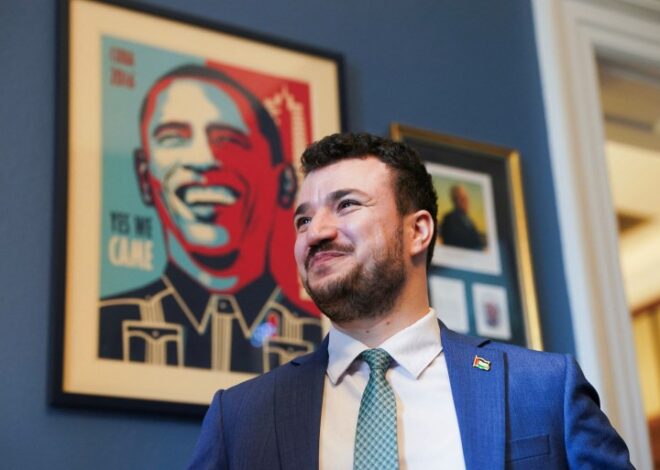U.S. wins release of Wells Fargo banker placed under exit ban in China

U.S. Secures Release of Wells Fargo Banker Detained in China
In a significant diplomatic development, a Wells Fargo banker who had been under an exit ban in China for several months has successfully returned to the United States. This resolution comes after extensive negotiations between U.S. and Chinese officials, as reported by multiple sources familiar with the situation.
Background of the Incident
The banker, whose identity has not been disclosed, was reportedly detained as part of a broader context of increasing scrutiny and tension surrounding foreign nationals in China. The exit ban, a common practice employed by Chinese authorities, often serves as a means to investigate individuals or to exert pressure in various diplomatic matters. The specifics of the case involving the Wells Fargo banker remain unclear, but the situation has highlighted the complexities of U.S.-China relations, particularly as they pertain to business and finance.
Diplomatic Negotiations
The negotiations that led to the banker’s release were reportedly multifaceted, involving discussions at various levels of government. U.S. officials worked diligently to advocate for the banker’s freedom, underscoring the importance of protecting American citizens and business interests abroad. The Chinese government, while maintaining its stance on enforcing laws within its borders, ultimately agreed to allow the banker to leave the country.
This incident reflects a broader trend of increasing tensions between the U.S. and China, particularly in the realms of trade, technology, and international finance. The exit ban on foreign nationals can often be interpreted as a tactic used by China to assert its authority and control over foreign businesses operating within its territory.
Implications for U.S.-China Relations
The release of the Wells Fargo banker may have implications for future diplomatic interactions between the U.S. and China. As both nations navigate a complex relationship marked by competition and cooperation, incidents like this could influence how each country approaches negotiations on a range of issues, including trade agreements, cybersecurity, and human rights.
The U.S. government has consistently expressed concerns regarding the treatment of American citizens and businesses in China. This incident serves as a reminder of the challenges that foreign companies face in the Chinese market, where legal and regulatory frameworks can be opaque and subject to change.
Wells Fargo’s Position
Wells Fargo, as a major American financial institution, has a vested interest in maintaining a strong presence in China. The bank has been involved in various operations within the country, and the welfare of its employees remains a top priority. The resolution of this situation is likely to be welcomed by the bank, as it alleviates concerns over the safety and security of its personnel in a critical market.
In light of the banker’s return, Wells Fargo may also reassess its strategies for operating in China, ensuring that its employees are well-informed about the potential risks of working in a foreign environment that is increasingly unpredictable.
Conclusion
The successful negotiation for the release of the Wells Fargo banker underscores the delicate balance of diplomacy required in U.S.-China relations. As both nations continue to navigate a landscape fraught with challenges, incidents like this will likely play a pivotal role in shaping future interactions. The banker’s return is a positive outcome, but it also serves as a reminder of the complexities involved in international business operations.
Key Facts
– A Wells Fargo banker was barred from leaving China for several months.
– The U.S. government negotiated for the banker’s release.
– The identity of the banker has not been disclosed.
– The incident reflects broader tensions in U.S.-China relations, especially regarding foreign nationals.
– Wells Fargo has significant business interests in China, making the safety of its employees a priority.
Source: www.washingtonpost.com


